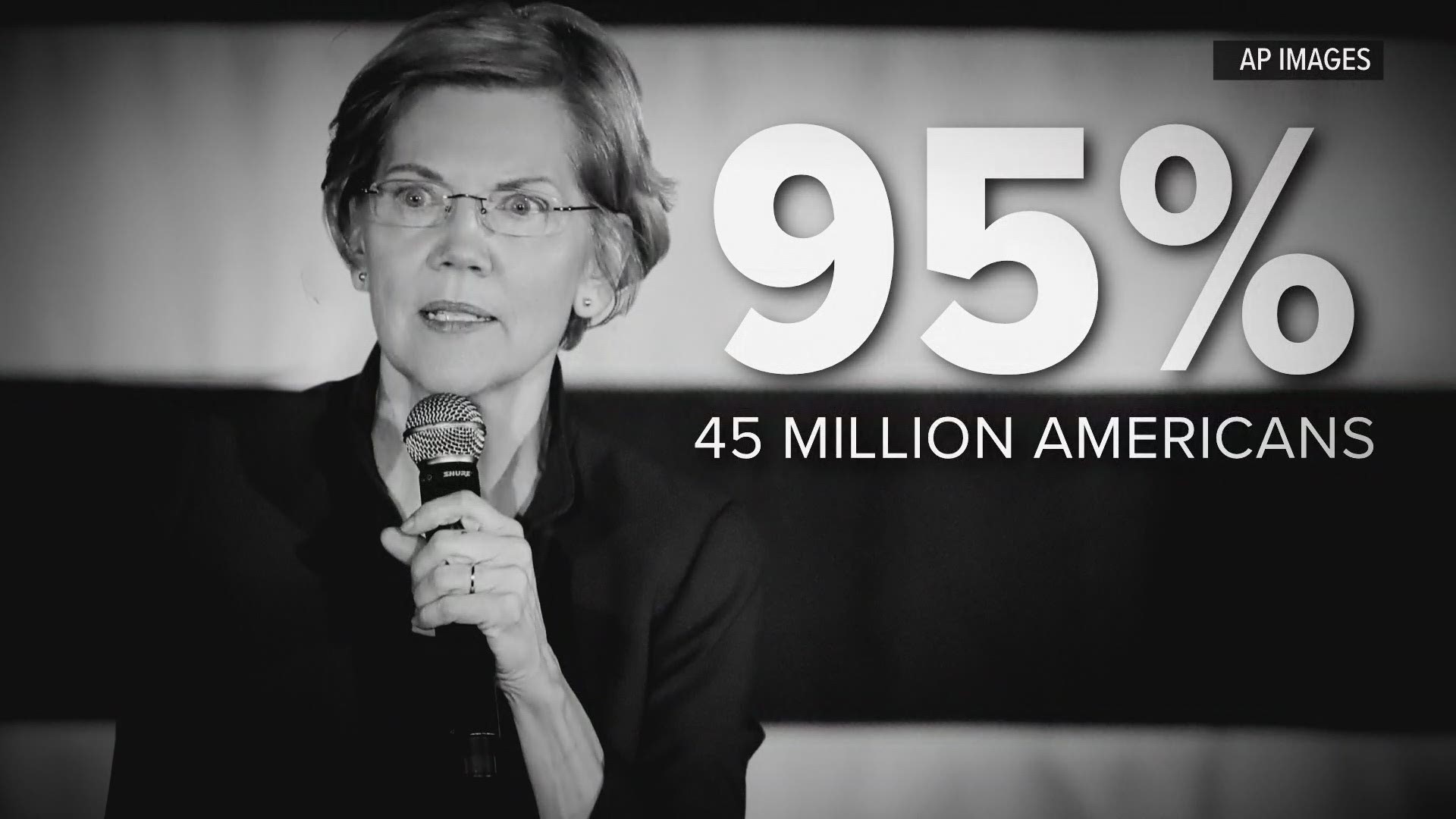COLUMBIA, S.C. (AP) — Democrat Elizabeth Warren is proposing the elimination of existing student loan debt for millions of Americans, part of a sweeping set of education funding proposals announced as she and other presidential candidates seek to differentiate themselves in a sprawling field.
The Massachusetts senator says the proposal unveiled Monday would eliminate almost all student loan debt for 42 million Americans, canceling $50,000 in debt for each person with household income under $100,000. According to Warren's description of the plan in a piece to be posted on Medium, the debt cancellation proposal would create a one-time cost to the federal government of $640 billion.
Many in the growing field of Democratic candidates have proposed reforming the nation's student loan programs, including dramatic restructuring of existing refinancing structures, but Warren appears to be the first to propose flat-out debt cancellation. Warren and others in the field, including Sens. Cory Booker, Kirsten Gillibrand and Kamala Harris, are backing the Debt-Free College Act , a bill that would cover all costs for students attending a public college without necessitating loans.
Among Warren's other proposals is elimination of tuition and fees for two- and four-year public college degree programs, as well as a $100 billion investment in Pell Grants, a federal aid program that requires no payback.
Tuition-free higher education was a mainstay of Vermont Sen. Bernie Sanders's 2016 presidential run. Warren, Harris and Sen. Kirsten Gillibrand, another presidential contender, all signed on as co-sponsors of Sanders' 2017 College for All Act , which would have allocated $47 billion annually to states to cover two-thirds of the tuition obligation, leaving states responsible for the rest.
The costs of debt cancellation and universal free college, Warren said, would be "more than covered by my Ultra-Millionaire Tax -- a 2% annual tax on the 75,000 families with $50 million or more in wealth."
Warren's plan would also create a fund with a "minimum of $50 billion" intended to keep per-student spending at historically black colleges and universities and minority-serving institutions comparable to other area colleges.
Minnesota Senator Amy Klobuchar, who is also running for the democratic presidential nomination, was among those who casted doubt on Senator Warren's plan.
Klobuchar was asked about the loan cancellation plan at a CNN town hall event in New Hampshire on Monday. Instead of cancelling student loans, she advocated for expanding on current loan forgiveness programs and extending them to in-demand jobs. She said hse would also work to lower interest rates and refinancing programs.
Klobuchar said she also supports free tuition for two-year community colleges, but she indicated that Senator Warrens' plans for free four year public universities, along with broad loan cancellation, aren't realisitc.
"Everything that I have proposed to you, I have found ways to pay for it, that I think makes sense, that we can actually get done," Klobuchar said.
As Klobuchar mentioned, the US Department of Education does already offer some, limited student debt forgiveness and repayment assistance. The Public Service Loan Forgiveness program is among the most notable currently available. It's available for those who work in a number of careers, including government organizations, public education, public health or other qualifying not-for-profit careers.
For more information on student loan programs and resources available in Minnesota, click here.

